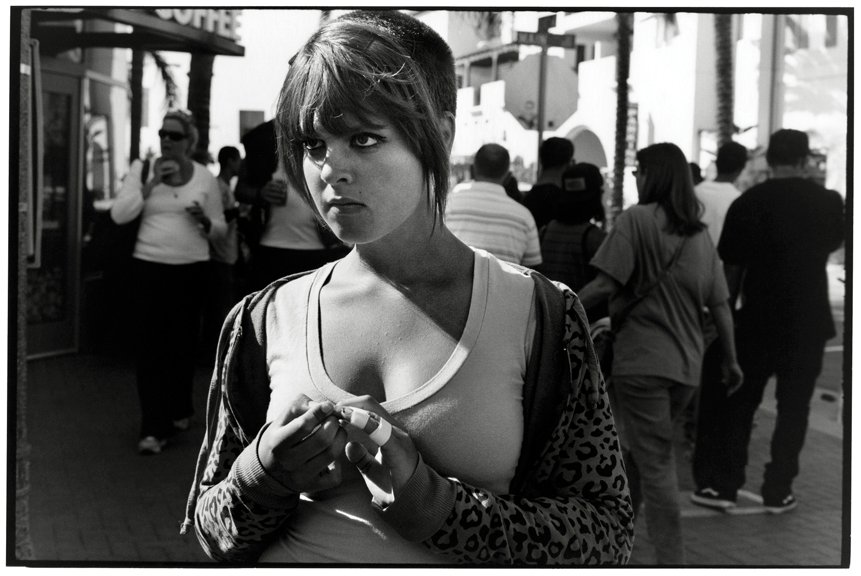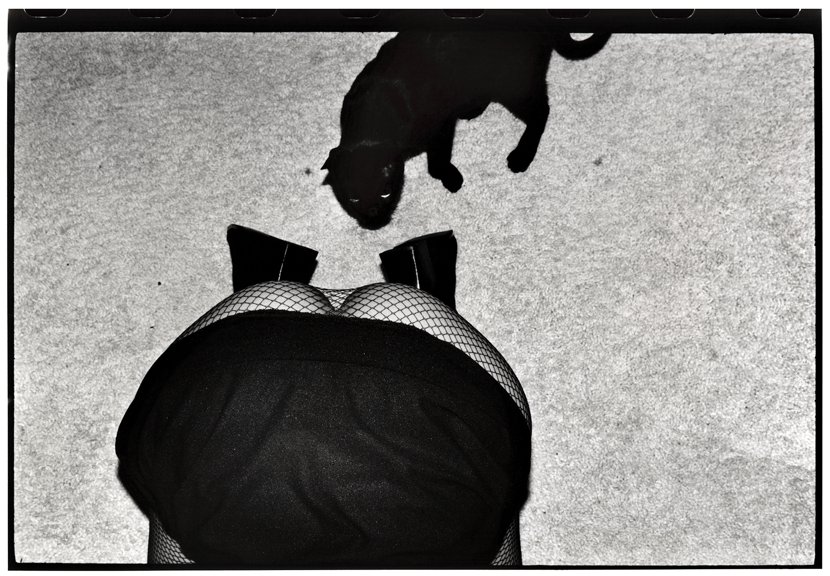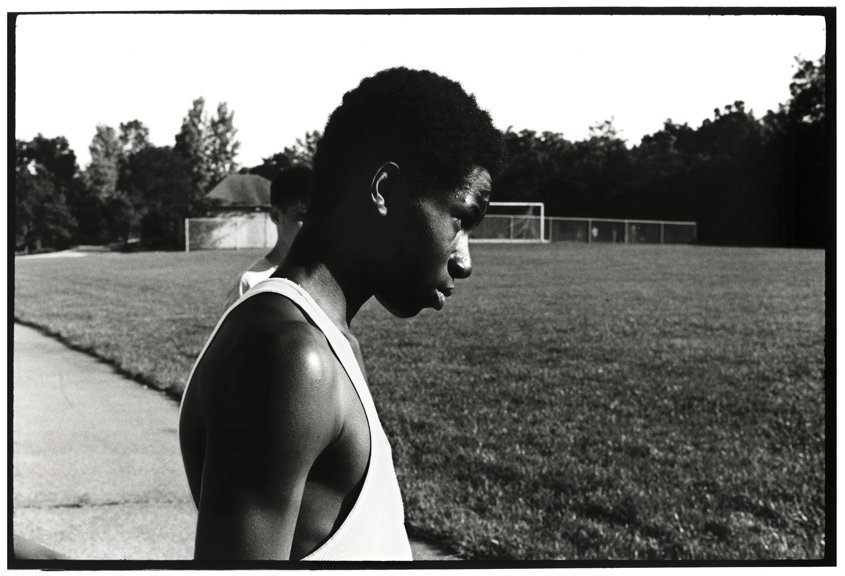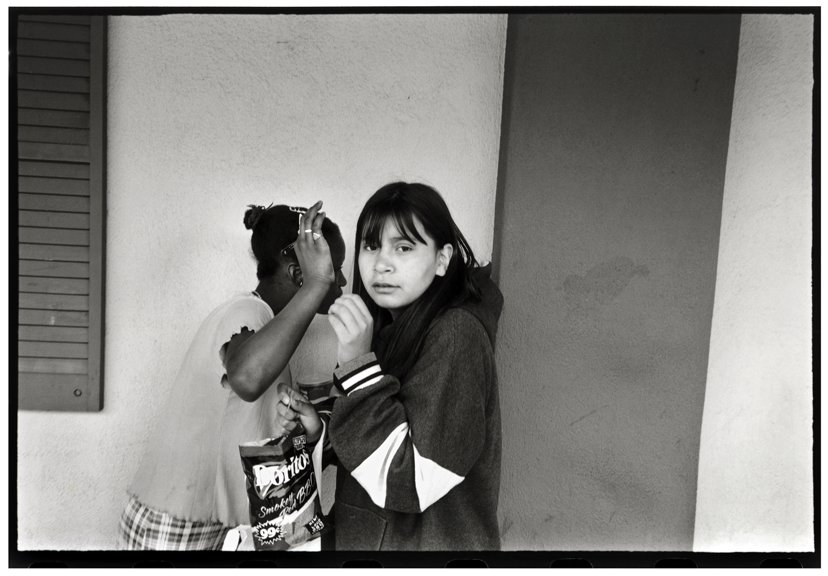Mangled, bloodied and raw – Ed Templeton’s photography is a candid document of the halcyon days of youth and rebellion. Anarchy in the U.S.A. reigns supreme with open wounds, smoking youths and suburbia turned upside down, with all the coins shaken loose. There are also private moments captured in Templeton’s photography – of his wife Deanna and his contradictorily quiet life in the laid back hamlet of Huntington Beach, California. As a pro skater, Templeton has been given the unique opportunity to travel the world – luckily he has captured everything along the way. In his new monograph of photography, entitled Wayward Cognitions, Templeton curates images from his archive spanning nearly twenty years. Templeton not only shoots on film, but he also prints his own photography in his home darkroom – an anomalous practice lost to the ages. In the following interview, Templeton talks about Wayward Cognitions, the dichotomy between the skate world and art world, and why he is sticking to film.
AUTRE: Can you remember when you first picked up a camera and started documenting your life?
ED TEMPLETON: It was 1994, I had been shooting photos as a tourist like anyone might, but I wasn’t taking it seriously. I had some sort of epiphany where realized I needed to document my life and the lives of people around me. I had already been a pro skater for 4 years getting to travel the world and be paid to skateboard, I thought, "who gets to do that?" I figured there was something there, a story that needed to be told, and I had already wasted 4 years! After that I was very strict about having a camera at all times and ready to shoot whatever happened. Soon after the initial idea to document the subculture of skating I started shooting way more than skateboarders. Skateboarding took me all over the world, it gave be a travel bug and a desire to shoot photos of the people and places I visited that was a wider view than just the people I was around.
AUTRE: There is such a stark dichotomy between the skate world and the art world where most of your art is collected and exhibited – what feels more like home to you?
TEMPLETON: I will always feel more comfortable around skaters I guess. That is how I grew up, and that is the world I have been a real part of. The art world is so much bigger, I'm just one little blip on a ocean sized screen. I think art and skating are very closely entwined, but it's true, speaking in monetary terms, there is a big gulf between art collectors and skaters. That can be weird at times, but in a good way. Nothing makes me happier than to be at an art opening filled with fancy art people in suits and nice dresses and then to see mixed in the crowd young people in hooodies carrying skateboards. Art is for everyone.
AUTRE: Did you ever imagine that your photography would be so widely noticed and appreciated?
TEMPLETON: Not at first. I was starting to collect photo books, and I was out shooting and documenting subcultures and places and could care less. I started shooting seriously in 1994, I first exhibited some photos along with my paintings in 1998. So I didn't feel confident at first. But as time went on, I would be shooting and collecting books of great photographers and holding my work up to theirs to see if I was developing and growing. At some point I started feeling very confident that I had done some good work, work worthy of being noticed. I had started showing photography in exhibitions to the point where it was way more about photos than painting. So I can't lie and say I didn't hope my photos would be noticed by a wider audience, but you have to just plug away and make good work, and participate in the world you want to be a part of. I was able to make a book, Golden Age of Neglect that I feel was a sort of calling card for me. Ever since then all I think about is making books. I just love photo books and want to make them and collect them and be part of that world.
photograph by Deanna Templeton
AUTRE: Do you think that being a professional skateboarder allowed you more freedom and opportunities to take photographs?
TEMPLETON: It certainly got me around the world. I think seeing new places and cultures and environments helps to humanize you and gives you a bigger sample of what the world is really like. That helps develop your eye. Of course skating itself develops your eye too, in different ways, but ways that can be applied to shooting photos, like looking ahead, and being ready for obstacles. I use that when walking and shooting for sure, always looking way ahead to see whats coming at you, and being prepared to shoot when it comes near. My style of photography has come purely from doing other things in life. I never travelled somewhere just to take photos. All of my travel has been for skating or art shows, and I shoot wherever I happen to be going. Pro skating gives you freedom from having any set hours to work, and surrounds you with interesting people, so yes!
AUTRE: Who are some photographers that you look up to you?
TEMPLETON: Jim Goldberg, Garry Winogrand, Hank Wessel, Robert Frank, Tom Wood, Anders Petersen, Mark Cohen, Cartier-Bresson, Bruce Davidson, Alex Webb, Tobin Yelland, Larry Clark and Nan Goldin, the usual suspects I suppose. I like photographers who approach it like art, meaning outside of traditional photographic ways of presenting it, using collage, ephemera, writing, paint. I think David Hockney was great when he was doing photography, Peter Beard, Boris Mikhailov, Jim Goldberg, even Robert Frank, they all have presented photography from the position of an artist, not just a photographer.
AUTRE: You shoot on film and you develop your own photographs in your own darkroom – you shoot a lot of images, do you ever think about going digital and why is film so important in your work?
TEMPLETON: I like the way film looks, and I can afford it. Those are the major reasons. I'm not anti-digital, but I'm gonna shoot film and print traditionally as long as I can afford to and as long as they are making film. There's a hand done quality to a fiber print that is missing from digital forms. And I think going that extra mile in shooting film and having to focus and expose each shot old school style, and then making your own prints by hand pays off in the authenticity and feel it gives when the viewer sees it ultimately. This is just photo-nerd stuff, because I know that 99% of people do not give a shit how it was made. It's just for that 1% that will geek out on it, like I do when I see the master photographers work in person.
AUTRE: Your new book Wayward Cognitions is almost like a retrospective of sorts – what made you decide to go in that direction versus a more thematic direction like some of your previous monographs?
TEMPLETON: Most of my books have had a pretty specific theme, Teenage Smokers and Kissers are self explanatory, The Seconds Pass was all photos from a car, Deformer was all photos relating to or from suburbia, Litmus Test was all photos from Russia. So I wanted to just make a good ol' photo book. No theme, just photos. But It's not a retrospective because I chose all photos not printed in a book before. It's not an overview of work I made in the past, it's a story woven from my archive. When you shoot like me you amass a lot of photos. To me it's a shame that only a tiny portion of the photos you think are worthy might ever be seen. This type of book is a way to choose from that pool, with no limit on time or place or theme, and sequence the images in a way, very subtly, that a story, however vague, comes through. The name Wayard Cognitions is a more eloquent way if saying "Stray Thoughts" and that is what these photos are. Photos that do not fit in any theme or future project. Photos that have strayed from ever being seen, until now.
AUTRE: What’s next?
TEMPLETON: Onward to more books! I have plans to finally make my big book about my time documenting skate culture, a book on Catalina Island, a book with Deanna Templeton about the town we live in, Huntington Beach. Right now I'm working on a painting only show in April 2015 at Roberts and Tilton gallery. And I will be releasing a new zine and exhibiting some past zines at the LA Art Book Fair in January.
Text and interview by Oliver Maxwell Kupper for Autre. You can pick up a copy of Wayward Cognitions HERE. You can also catch Ed Templeton at his book signing at Moca Grand Ave on December 18 – 250 South Grand Ave, Los Angeles.








